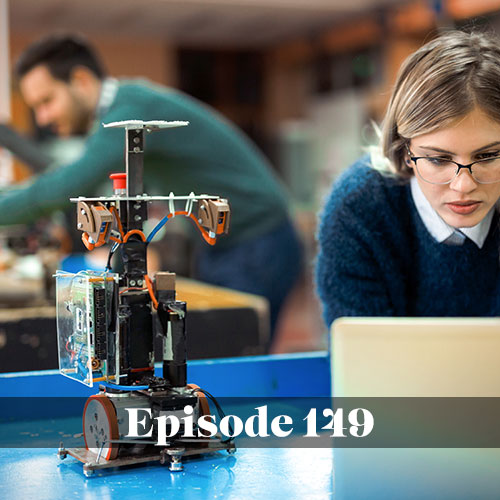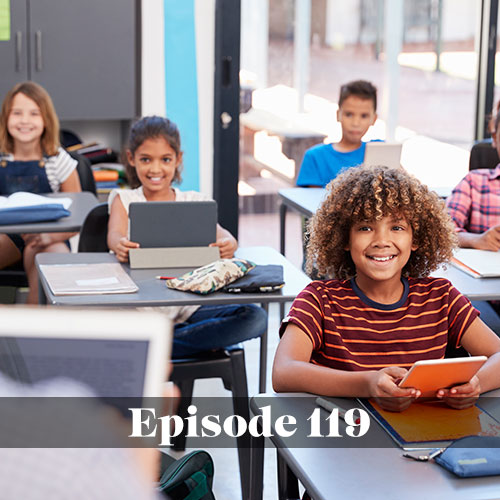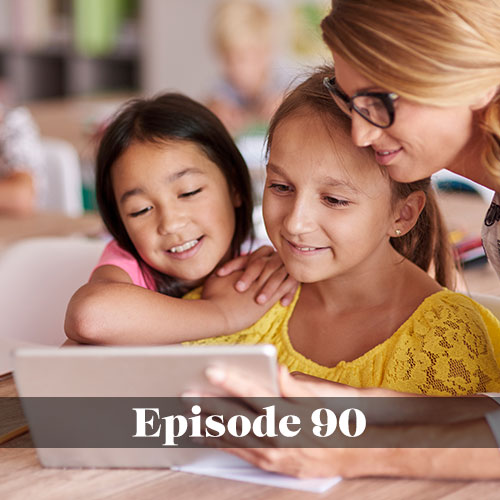Host Joel Gagne speaks with Shawn Morris, science teacher at Hilliard Darby High School. Shawn and Joel discuss the impact of technology on education and how technology in schools has changed over the last several decades.
Shawn teaches biology, anatomy, physiology, geology and oceanography. He’s been a science teacher for 19 years, and he says that teaching has (of course) changed a lot over his career, especially relating to the impact of technology on education. Resources have improved dramatically for both teachers and students.
“With the power of the internet, we have access immediately to just about anything,” Shawn says.
He says that now, all students have a tablet and most have their own smartphones. He says that while there are challenges, he believes the benefits outweigh the challenges.
“I’m not always the expert in the room anymore,” Shawn says. The students can find a lot of the information on their own, and many are enthusiastic to do so. One big impact of technology on education is that encourages students to do more learning on their own.
“The technology is not always used for good, but when it is, it’s fantastic,” Shawn says.
Joel brings up that these days science isn’t always unquestioned anymore. He wonders if there’s more pushback on what Shawn teaches now than when he was teaching 19 years ago.
He says not necessarily, as he’s always dealt with questions from parents. He specifically remembers questions about the fact that he was teaching students about evolution when he first started.
“I haven’t had that question in probably 15 years,” Shawn says, as he’s been able to teach that evolution has other contexts. “It doesn’t have to be religion versus evolution. The term evolution doesn’t have to have a negative connotation with it.”
Joel says that while the internet is a wonderful source of information, it’s also a wonderful source of misinformation.
Shawn says that while it’s rare for a student to approach him with misinformation, he’s typically able to talk students through sources, and they both come to the conclusion that the information presented was false.
“It’s trying to sift through what is usable and what is pretty much garbage,” Shawn says.
Joel asks what Shawn would recommend parents do to prep their children to learn more about science.
“One of the best things that can happen is early exposure,” Shawn says. He says anything that’s hands-on exploring is great. Books and interactive projects help children learn, even very early.
“The more that you can bring from the outside that pertains to their world, the easier it is for them and the more they want to learn about it,” Shawn says.
As for toys at home, Shawn mentions a circuit board that his daughters recently got, and how interactive toys like that can be incredibly powerful in getting children excited about science.
Joel asks for any shifts that he sees on the horizon regarding the impact of technology on education. Shawn mentions that for him the big shift has been providing every student with an iPad.
While there are some challenges (like being able to easily share homework via AirDrop), the benefits of the technology are many. For example, if a student misses school, Shawn can share everything they missed easily via the technology they use at Hilliard Darby High School.
“There’s a lot more independence, and that makes it so much easier for everybody,” Shawn says. Students don’t fall behind, and it saves the teachers time.
Shawn uses Remind to send messages to students and parents about assignments and updates, which is just another example of the impact on technology on education. He can easily communicate with students and parents, and they can easily communicate with him.
“It’s OK to stay home when you’re sick, and we prefer that you do,” Shawn says. It’s easy to get homework and updates to the students so that they don’t struggle to get back on track.
Shawn says that rather than overseeing a study hall every day, he has a class period devoted to answering other teachers’ questions about technology.
Joel asks Shawn which one book he’d recommend for our listeners, and he suggests “The Immortal Life of Henrietta Lacks.”
Got a question or topic you’d like covered in an upcoming We Love Schools podcast? Email us at info@weloveschoolspodcast.com
First time listening to We Love Schools? Learn more about our weekly podcast.
Interested in learning more about how the Allerton Hill Communications team can help your school with communications? Contact us today.






